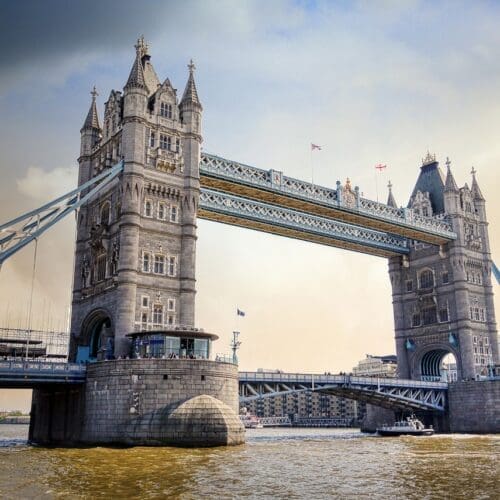Contractual risks if Thames Water enters special administration
August 2025Less than a month ago, Thames Water (TW) was hailing its plans to deliver around £840m worth of major projects as part of its 2025–2030 investment plans. Major players, contractors and consultants are already engaged on TW’s AMP8/9 Capital Programme Framework. However, the Government has now engaged insolvency specialist FTI Consulting (FTI) to advise on planning for a possible Special Administration Regime (SAR) for the struggling utilities company. This follows on from the court approved liquidity and debt restructuring plan and the passing of the Water (Special Measures) Act 2025 (both February 2025), the latter of which strengthened the powers of the water regulator and resulted in TW being fined over £120m in May 2025.
TW is facing bondholders and other major creditors who are owed over £30bn. However, both the existing supply chain already contracted to deliver major works and those who may have started engaging in the tender process for the 2025 – 2030 capital projects programme also face an uncertain future. The SAR may be avoided if FTI and the Government can construct a further plan acceptable to creditors. Although SAR is looking increasingly likely, the Government is still pushing to rescue the utilities company without progressing to administration.
This article explores how to position yourself for the best outcome and the contractual implications of administration.
What is a SAR?
A SAR can be triggered if a water company such as Thames Water becomes insolvent, or if it fails to meet its regulatory obligations to such an extent that it is deemed inappropriate for the company to continue operating under the present arrangement.
It involves the appointment of a Special Administrator to manage the company’s affairs. This legal process is designed to ensure the continued provision of water and wastewater services, minimise disruption to essential services, and facilitate a smooth transfer of the business to new, financially stable owners. Where the Special Administrator considers that the transfer of the business to another company is the best option, the aim is to secure the performance of the water and sewerage services provided by TW.
Recent changes to the legislation, such as The Water Industry (Special Administration) Regulations 2024, have made it easier to place water companies in special administration and have introduced new options for transferring the business, such as hive-downs where assets are more easily transferred to a subsidiary.
Legal housekeeping – what to do now and key questions to consider:
- Check your contracts:
Check what contracts you have in place with TW, including contracts where works have commenced ahead of paperwork being signed. Are they construction contracts which afford Construction Act protection as regards payment and disputes?
- Check the financials:
Which contracts are you owed money on? Have you issued invoices for all works undertaken?
Consider taking active steps now to recover unpaid invoices – this is particularly important due to the contractual implications of an employer going into administration.
Have you issued payment notices in accordance with the procedure set out in the contract?
Are you owed retentions on completed contracts?
Are you owed monies in connection with materials, including those stored on and off site?
- Check the insolvency provisions
How is insolvency defined in your contract?
Does the contract permit or restrict suspension or termination where SAR or insolvency more widely is anticipated?
The potential insolvency of TW could significantly affect ongoing contracts, and the impact should be assessed promptly. Under the Corporate Insolvency and Governance Act 2020 (CIGA 2020), it has become more difficult for contractors to terminate agreements on insolvency grounds.
CIGA introduced section 233B into the Insolvency Act 1986 (IA), which restricts suppliers, subcontractors, and contractors from terminating contracts or ceasing supply where the client is subject to formal insolvency proceedings. This applies even if the contract includes a clause allowing termination upon insolvency – such clauses become unenforceable once insolvency proceedings begin.
Practically, this means that if a supplier had a right to terminate due to an event (e.g., late payment) before insolvency proceedings started but did not act on it in time, that right is lost once insolvency commences. However, rights arising after the start of insolvency proceedings – such as a new late payment – remain valid grounds for termination.
Section 233B only refers to contractual rights which arise pre-insolvency proceedings. Although there have been no court judgments to date on this point, it suggests that the common law rights to terminate, e.g. repudiatory breach of contract, will be exercisable even if the event occurred prior to the insolvency event.
- Be careful not to breach your contract:
Suspension and termination of contracts are complex legal processes, and it is easy to fall foul of the rules and end up in breach, enabling TW to claim against you.
It is essential that suppliers do not act prematurely in ceasing supply of goods or services. Suppliers are required to continue supplying goods or services, even in circumstances where a termination right arose prior to the insolvency procedure commencing. If an event occurs post insolvency proceedings commencing that gives rise to a termination right, then the relevant contract can be terminated.
- Disputes:
What contractual rights do you have regarding disputes and resolving them? Is there an escalation procedure you must follow?
Are you in dispute with TW on any of your contracts and if so, what stage has the dispute reached?
- Contracts in progress:
Have you been notified of any plans by TW to suspend progress of works or terminate your contract?
Have you approached the TW project team you are working with and/or TW’s legal team following the announcement that a SAR is an option being considered by government?
- Payment:
Suppliers should be aware that they may not recover amounts owed in full following the insolvency process. The priority for payments on insolvency means that unsecured creditors, such as suppliers without security, will be unlikely to recover their debts in full.
What if Thames Water is placed into a SAR?
In July 2024, Ofwat placed TW under ‘special measures’, subjecting the company to increased regulatory oversight. As part of this regime, TW has faced heightened scrutiny of its financial position. While these special measures introduced stricter obligations, a potential SAR would carry more significant consequences for both TW and its suppliers.
Only the water regulator Ofwat and the Secretary of State have the power to initiate the SAR process.
If TW is placed in a SAR a Special Administrator will be appointed in much the same way as an Administrator can be appointed to run the affairs of a private company. The focus is likely to be on rescuing TW as much as possible and transferring it into new ownership.
SAR is a tailored form of insolvency that prioritises public interest objectives over the usual aims of administration. These objectives include ensuring the continued provision of essential services, protecting customers, and safeguarding the environment.
Under the Water Industry (Special Administration) (England and Wales) Rules 2024, the public service will continue to be provided pending rescue or ownership transfer. If Thames Water (TW) enters SAR, a special administrator will be appointed with powers similar to – but adapted from – those of a standard administrator under the Insolvency Act 1986. The options available on SAR will be to:
- allow TW to enter special administration, restructure its debts and exit SAR as a going concern;
- transfer ownership as a going concern;
- hive-down the regulated business to a subsidiary, which may offer tax efficiencies and attract buyers; and
- introduce schemes of arrangement and restructuring plans to support the rescue of TW.
How we can help
At Beale & Co, we can help health check your contracts and advise on steps to protect your position contractually, particularly on termination following the commencement of insolvency procedures. We can advise on suspension and termination risk issues, looking at how to exit a contract and secure payment.
We can also advise on pursuing contractual and other legal claims against TW, including in the event a Special Administrator is appointed. We can also liaise with FTI and negotiate your claims against TW.
If required, we can assist with ongoing disputes including payment claims and adjudication.
If you require any advice on your contractual position, whether with TW or any other client, please contact the authors or your Beale & Co lawyer.
Download PDF







